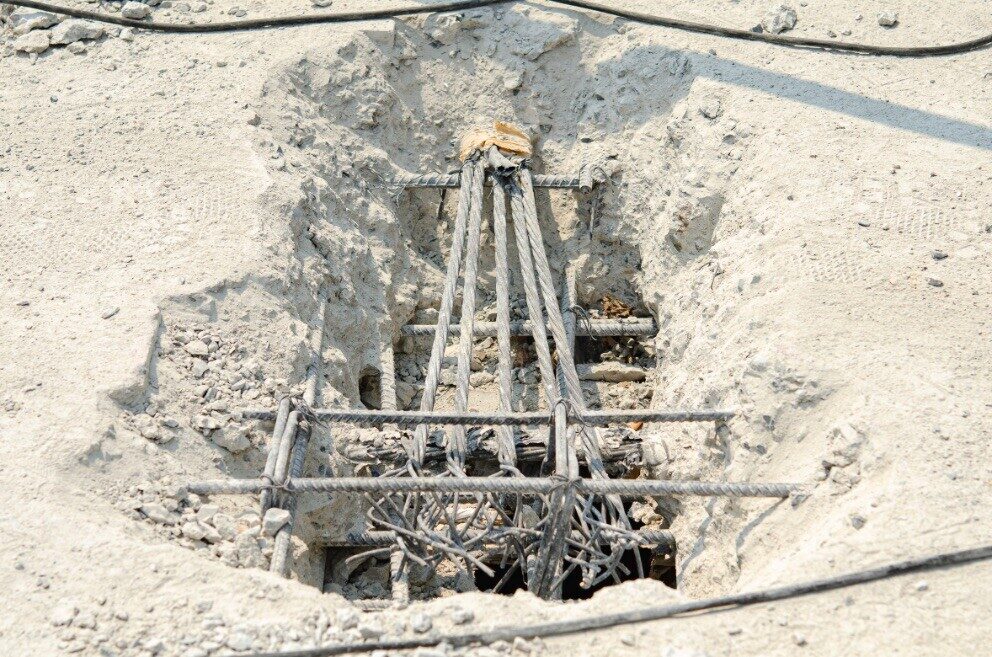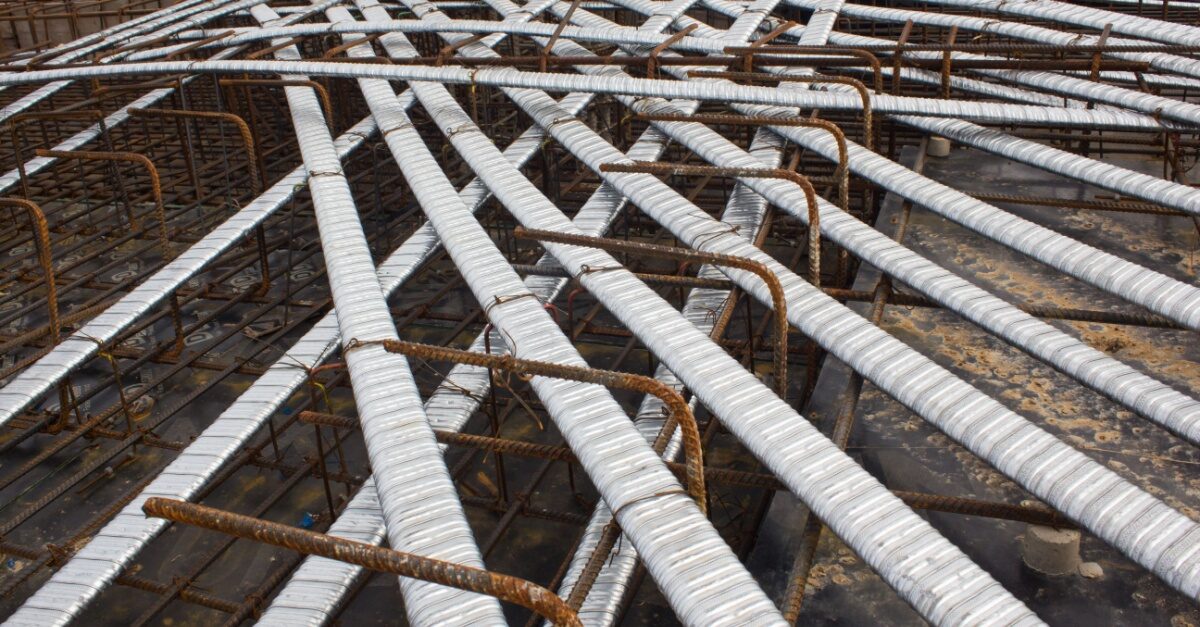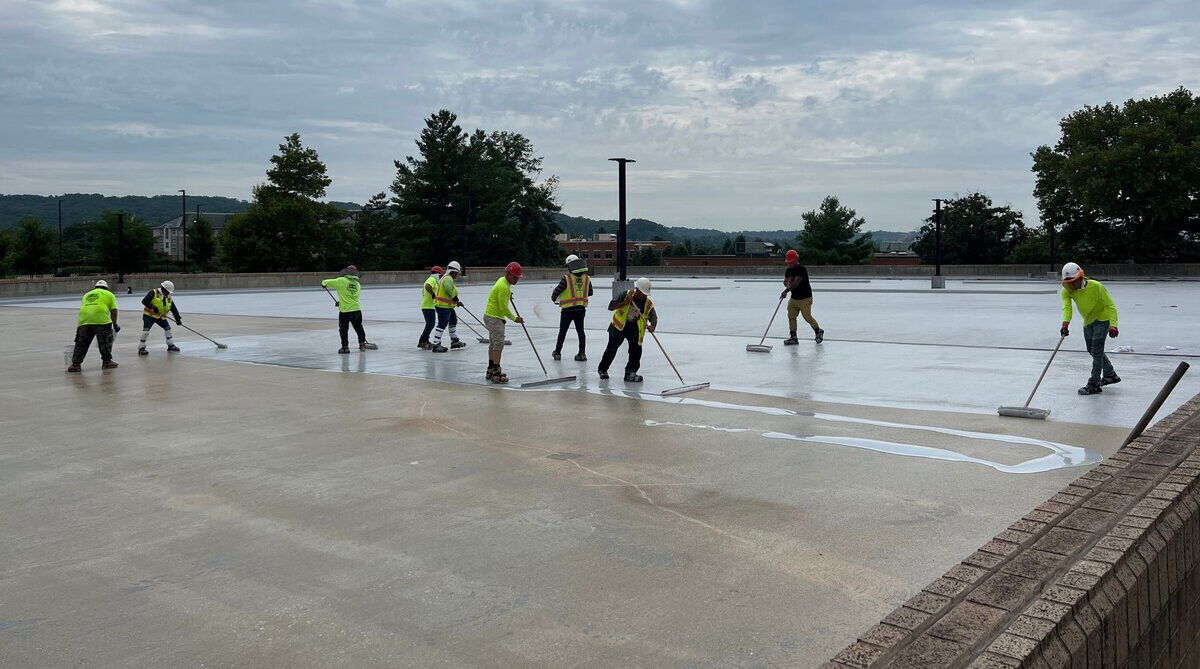What is Cement, Concrete & Chemical Grouting and its Role in Building Waterproofing?
After finding cracks and leaks within a building, taking the proper steps to save the structure and costs is critical. When companies begin to look into waterproofing services to ensure the concrete strength of the building, questions may arise like what is chemical grouting? What does pressure chemical grouting have to do with the process? Knowing the background of waterproofing and what the service pertains to will help you choose the best company for the job. Understanding the differences between cement, concrete, and chemical grouting, and knowing the importance of grouting and what to expect in building waterproofing services, can provide insight that will help you save the structure of any building.
What Is Cement, Concrete, and Chemical Grouting?
When a structure requires concrete restoration, grouting can be used to repair concrete cracks, fill seams and gaps in tiles, gaps for sealing and waterproofing, and for soil stabilization. Cement grouting with pressure is injected to fill voids or fractures in the soil, rock unit, or concrete structure. Looking at the chemical grouting specifications, the chemical grouting transforms granular soils into sandstone-like masses by filling the voids with low viscosity, non-particulate grout. An example TunnelingOnline uses to describe when to use chemical or cement grout, “For example, Portland and ultrafine cement grouts are predominantly used to stabilize soil and/or control water in civil projects, including earthen dams, levees, mines, tunnels, subways, vertical shafts, below-ground structures or waste encapsulation. These types of large-scale projects will often require significant volumes of grout to be injected. Chemical grouts will often complement the cement-type grouts and in some cases will be the predominant grout used for a particular situation.”
Why Grouting Is Important to Maintaining the Whole Building Envelope
Once the building envelope has obtained moisture, waterproofing must become a priority for building owners and managers. Having a preventative approach can save money in the long run to avoid a full-scale removal and replacement. It is important to take important steps to mitigate the problems early. For example, every five to eight years, have the building’s waterproofing service redone.
Grouting offers several advantages:
- Grouting does not induce vibration, which can be controlled to avoid structural damage.
- Grouting can help control seepage, groundwater flow, and hazardous waste materials.
- Pointing out areas for repair and periodic check-ups, which can help with budget planning.
- Grouting and keeping up with inspections positions owners to plan capital expenditures effectively.
- Grouting can resolve the issues of cracks and stains, rather than just painting over the real problem.
According to GrandviewResearch, “The building structures application segment is expected to expand at the fastest growth rate of 8.4%, in terms of revenue, over the forecast period. The growth is attributed due to its high application in building to improve the shelf life and protection at varying temperatures.” This segment indicates the importance of prioritizing the structure of the building and using waterproofing now rather than later as the market becomes more expensive.
Common Causes of Grouting Failure
Waterproofing can save the structure of a building and preserve its value, but what happens when poor waterproofing service occurs? Taking the time to do a water leak investigation can help identify where the critical issues lie. Any issues in waterproofing may happen due to:
- Issues from higher levels: In multi-level buildings, the higher floors may be more susceptible to waterproofing issues. For example, the top floors can experience problems with puddles forming on the roof from rainwater. Flat roofs especially frequently collect excessive rain that can lead to leaks and eventually damage to the structure of the building. On higher floors, poor workmanship with plumbing can also lead to waterproofing failures.
- Poor waterproofing work: Incorrect installation or poor workmanship of waterproofing can cause issues. Places that are trickier, such as balconies and windows, require professional waterproofing services. Additionally, wrong product specifications can result in insufficient substrate preparation, meaning the preparation before the waterproofing membrane was incorrect.
- Lack of maintenance: Continuing to check waterproofing areas on a regular basis will help identify any problems early, avoiding significant issues like concrete cancer. Tiny leaks, cracks, and stains should be a priority for immediate remedial steps.. Maintaining seals on windows, doors, wall systems, balconies, and roofs can provide time to formulate a proactive approach that decreases the risk of a developing issue.
- Incorrect waterproofing membrane: Make sure to choose a waterproofing system that includes a sheet membrane with all the ancillaries. Also, consider the flexibility of the membrane to allow building movements and to resist UV rays, chemicals, harsh salt air, and in some situations root penetration.
Poor waterproofing can fail, leading to cracks, mold issues, and structural defects that can have a high price tag to fix. Additionally, poor waterproofing can cause safety issues, significantly reduce the property value, and lead to unfitness for occupation. Partnering with a waterproofing and sealant services provider that ensures optimal solutions can remedy the problem.
What to Expect in Grouting Maintenance
To obtain a great remedial waterproofing outcome from grouting, find a professional you can trust. Taking important steps to having frequent updates on the structure of the building can save costs down the road. Here are a few steps to take to ensure the proper maintenance that will reduce the risk of bigger issues:
- Perform an annual or biannual walkthrough to examine the overall condition of the exterior wall system.
- Remove or replace sealants that appear to be torn, deteriorated, or inelastic.
- Remove plant growth that can contribute to moisture penetration or deterioration of any brickwork.
- Install remedial anchors and ties in accordance with manufacturer recommendations.
- Repoint with prehydrated mortar, mixed drier than conventional masonry work.
- When repairing mortar joints, surface grout hairline cracks and repoint damaged or deteriorating mortar joints.
Paying attention to the maintenance of the building, never dismissing cracks, and taking notice of any visual discrepancies like water damage can preserve the building. Maintenance and performing minor repairs can help avoid replacement and the need for drastic projects.
How to Pick the Right Waterproofing Service
To prevent a water problem and resolve issues associated with a faulty structure, a good waterproofing company can help. According to VentsMagazine, “Water damages can lead to massive problems in the building’s appearance and structure. It will affect the building surface and also lead to security and health issues for the members inhabiting the building.” Upon deciding to waterproof, the next important factor is finding a partner you can trust A few tips to help pick the best company for building maintenance services can include:
- Ensure the company has the proper paperwork and permits for the job, such as insurance, bonding, or licenses. Bonding will ensure the costs of any risks or accidents will be covered.
- Find a company that specializes in waterproofing structures.
- Ensure the company has the necessary infrastructure to complete the job. This will help ensure quality and reliability.
- Hire an experienced company, one that has a documented history of success.
- Due diligence should extend to reading online reviews of the company. This can help you eliminate companies that have a less-than-stellar reputation.
Properly protecting a building from different kinds of water damages, such as leaks, moisture, and rain, can help retain its structural integrity and value. Without waterproofing, the foundation of the structure may suffer and force cracks and joints to become bigger. Stay up to date regarding local building codes and reviews of companies, especially for high-rise buildings, and preserve the time spent on designing, planning, and building the structure.
Guarantee Building Integrity With Expertise in Building Waterproofing.
Having more concrete background knowledge on waterproofing and the aspects of the service can help you make an informed decision when choosing the best company to trust. Waterproofing failure can have a drastic impact on a building’s safety and value but it does not have to. Following the tips above and keeping a close eye on the maintenance of the building can lead to fewer long-term damages. To keep water leaks and other potentially costly issues from happening, enlist the professional waterproofing and sealing services offered by the JOBS Group.



